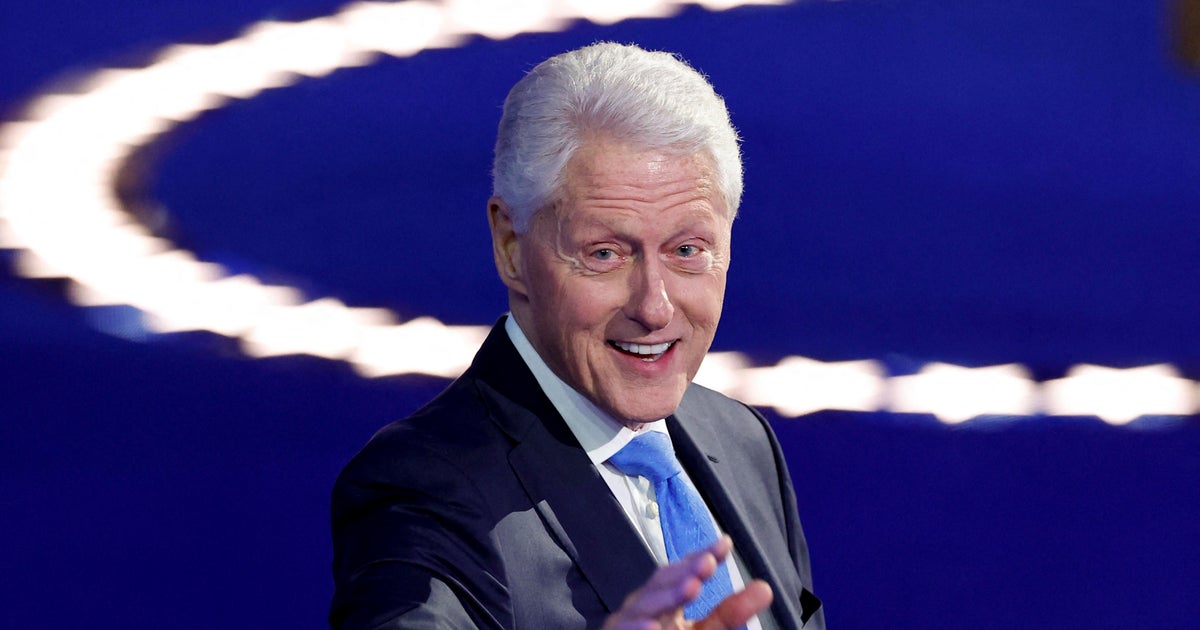Democrats go West! The Nevada caucus, California & the big Bloomberg ad buy
"Where Did You Get This Number?" is a podcast going inside the 2020 presidential campaigns, with analysis from CBS News campaign embeds, polls and other stories from the 2020 race. Subscribe today!
The 2020 Democratic presidential candidates are heading out West more often, specifically to California and Nevada. California has nearly 500 primary delegates up for grabs on Super Tuesday, March 3, and along with Nevada, it reflects a greater diversity of the American electorate than the other early states such as Iowa and New Hampshire.
Certain campaigns, like Senator Bernie Sanders' and former New York City mayor Michael Bloomberg's, have even been upfront about staking their presidential runs in the later states.
On this week's episode of the "Where Did You Get This Number?" podcast, host Anthony Salvanto takes a look at how the 2020 race is playing out in the West, specifically how the Nevada caucus works, the effects of Senator Kamala Harris suspending her campaign, and Bloomberg's ad buy in California.
Nevada's caucus doles out delegates through voters ranking up to five candidates. If a voter's No. 1 candidate doesn't clear a viability threshold, or get a minimum of 15% of the votes, their vote is automatically realigned to their second pick. However, a new a rule now allows voters to push "unviable" candidates over the threshold.
"During realignment, we can go to a second choice pick. So let's say that Bernie Sanders, Elizabeth Warren and Joe Biden all cleared that 15% during the first set of votes that were cast," explained Alex Tin, a CBS News 2020 campaign reporter based in Las Vegas. "But the change that they clarified... was that you and I can get together, our first choices weren't viable, and potentially coalesce into a second choice candidate that is now newly viable instead of our options only being Bernie Sanders, Joe Biden and Elizabeth Warren having cleared that first realignment threshold."
Many California donors and endorsers are also realigning their support after Harris dropped out of the race recently. Tin cited the United Farm Workers, "a major labor union" that represents most of California's agricultural workers in the Central Valley.
"And that union endorse her very early on and was seen as a loss for some of the other candidates who are really trying to court not only the labor vote, but specifically in California, that working-class Latino vote that is so coveted," Tin said.
California is also seeing a significant bump in Bloomberg campaign ads, though whether they're going to be effective is yet to be determined.
"I was talking on background a couple weeks ago to a staffer working for a campaign in California who was griping to me that, you know, when she turns on the TV, all she sees are Michael Bloomberg ads," Tin recalled. "She [saw] them when she was watching 'Face the Nation.' She watched them, an ad right before, and it felt like every commercial break after that on Sunday."
Subscribe to "Where Did You Get This Number?" and listen to the latest episode to hear more on Sen. Cory Booker's (D-NJ) campaign in Nevada, Sen. Bernie Sanders (D-VT) and minor league baseball, and other stories!
The podcast is available on Apple Podcasts, Google Play, Stitcher, Spotify, Art19, or wherever you get your podcasts.
Host: Anthony Salvanto, Director of Elections and Surveys at CBS News
Guest: CBS News 2020 Campaign Reporters Alex Tin, Cara Korte
Production Team: Maeve Burke, Allen Peng
Twitter: @WDYGTN
Instagram: @getthisnumber



